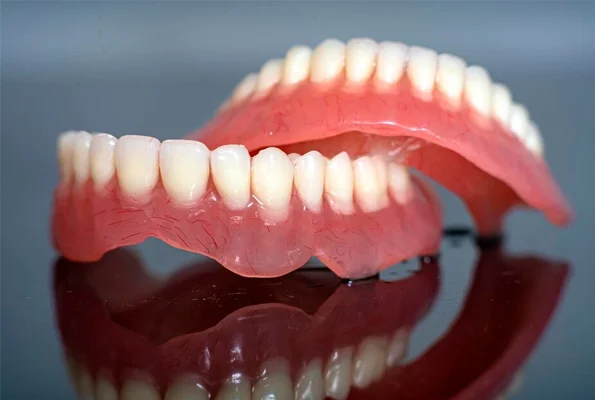
What are Dentures?
Dentures are custom-made prosthetic teeth designed to replace missing or damaged natural teeth. Crafted from durable hard resin, they offer a long-lasting solution for restoring your smile. At your appointment, your dentist will discuss the various types of dentures available and help you choose the best option for your needs. If you already have dentures and have questions about them, feel free to bring them to your visit.
Types of Dentures
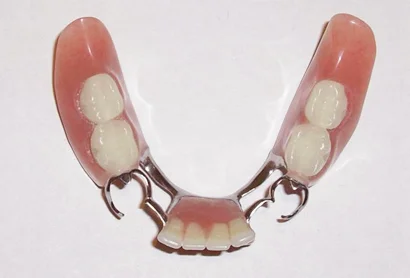
Partial Dentures
Partial dentures are designed to replace multiple missing teeth and are secured to the gum line as well as adjacent natural teeth. Unlike permanent solutions, partial dentures are removable, allowing you to take them out for cleaning and while you sleep.
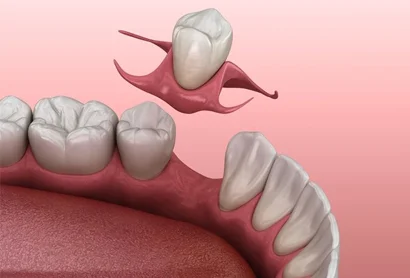
Immediate Dentures
Immediate dentures are removable prosthetics placed on the same day as tooth extraction. They provide a solution for patients undergoing single or multiple tooth removals, ensuring you don’t have to go without teeth while healing from the extractions.
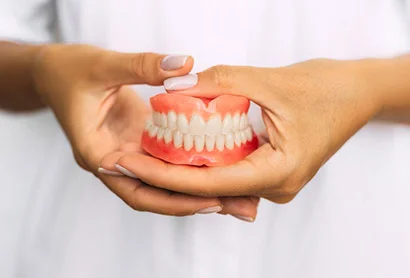
Complete Dentures
Complete dentures, also known as full dentures, are designed for patients who have had all of their remaining teeth removed. They provide a customized fit for the upper or lower jaw, replacing an entire set of teeth. These dentures can be removed for cleaning and while you sleep.
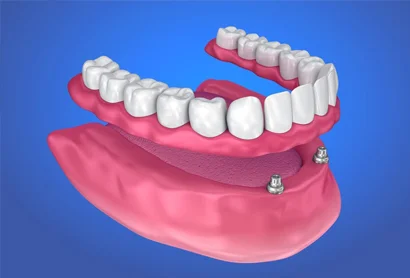
Overdentures
Overdentures are designed to fit over remaining natural teeth or dental implants. They help preserve any remaining natural teeth while providing a secure fit and stability. If no natural teeth are present, overdentures can be placed over dental implants for added support.
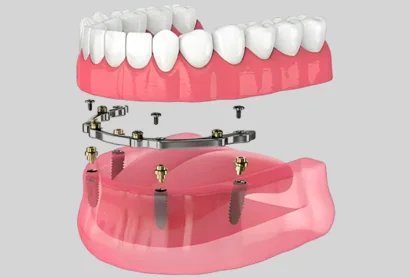
Implant Supported Dentures
Implant-supported dentures are secured by dental implants, which are titanium posts inserted into the jawbone. These implants provide a stable foundation for the denture, which can clip on and off the implants for enhanced retention and support.
Getting Used to Your Dentures
Adjusting to new dentures can take time. Initially, they might feel loose or cause increased saliva production. If you experience any discomfort, inform your dentist. They can make necessary adjustments to improve the fit and ensure your dentures are more comfortable.
How to Care for Your Dentures
Caring for your dentures is similar to maintaining natural teeth. Despite being artificial, dentures can still accumulate plaque, tartar, and bacteria. Clean your dentures with a denture cleaner or mild soap when removed from your mouth.
Use only a denture brush or a soft-bristled toothbrush to clean your dentures, as regular toothpaste can be too abrasive and damage them. Gentle effervescent tabs can also help with cleaning.
Additionally, brush your gums and any remaining natural teeth with fluoridated toothpaste to keep your smile healthy and vibrant.
How to Preserve Your Dentures
Remove your dentures before sleeping to give your gums a chance to relax and breathe. This practice helps prevent bacterial and yeast growth in your mouth and reduces the risk of decay on any remaining natural teeth. To maintain the longevity of your dentures, store them in warm water while you sleep.
Benefits of High-Quality Dentures
Dentures offer an excellent solution for achieving a healthy and natural-looking smile. They restore both aesthetics and function, enabling you to bite, chew, and speak with greater ease. Well-fitting dentures can enhance your ability to enunciate clearly and protect your remaining teeth. Additionally, they help maintain the normal function of your mouth and gums.
